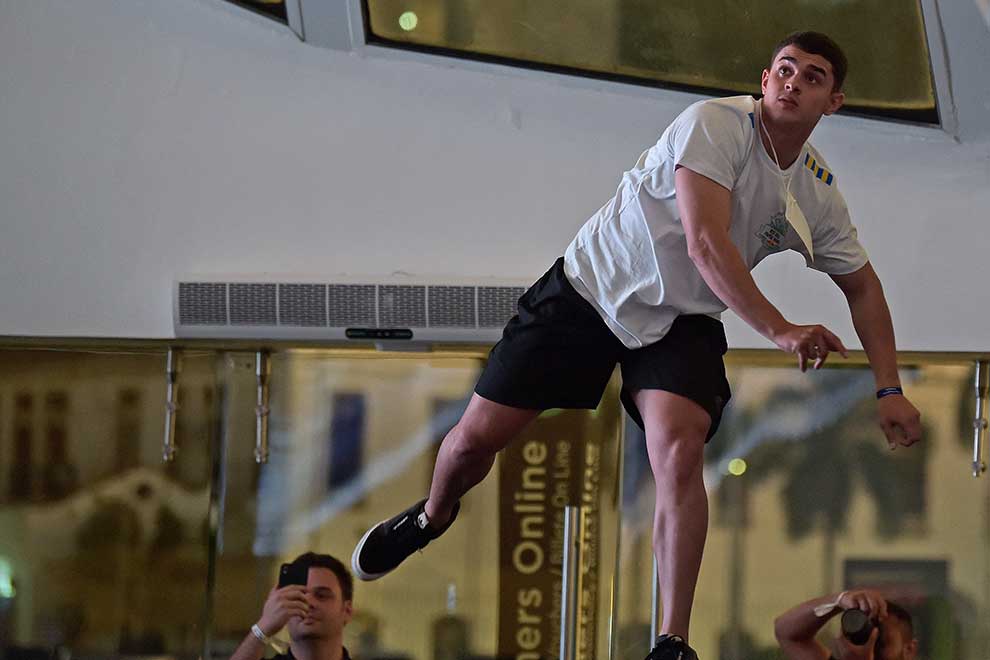
Competitor Isaac Queiroz Leite throws his paper plane a winning distance of 40.3m during the national Red Bull Paper Wings paper airplane throwing championships. AFP
More than a century after their beloved countryman Alberto Santos-Dumont made aviation history, young Brazilians are taking to the skies seeking international glory of their own . . . with paper airplanes.
Eight finalists took part on Monday in a heated competition in Rio de Janeiro to pick Brazil’s entrants for the world paper airplane championships in Salzburg, Austria in May.
Now in its sixth edition, Red Bull Paper Wings 2022 will pit representatives of 62 countries against each other in contests to decide the world’s best paper airplane flyers in both distance and airtime.
The Brazilian qualifiers were held at the Museum of Tomorrow, a sleek structure opened in the run-up to the 2016 Rio Olympics whose exhibitions have included tributes to Santos-Dumont (1873-1932), a national hero who won the Deutsch prize in 1901 for being the first person to pilot a dirigible airship around the Eiffel Tower.
Flying in the face of aviation historians, many Brazilians also insist the legendary bon vivant was the first to fly an airplane, and not the Wright brothers.
His would-be heirs face what some might consider an equally quixotic challenge: using a standard piece of 100-gram (3.5-ounce) A4 paper, create and fly the best-performing paper planes in the world.
Brazil has won the world championships twice, in 2006 and 2009, both in the airtime category.
Rockets and gliders
Eight students in fields as diverse as engineering, veterinary medicine and nutrition took part in Monday’s finals, after surviving preliminary qualifiers with an initial field of 2,500 entrants.

A competitor makes a paper plane during the national Red Bull Paper Wings paper airplane throwing championships at the Museum of Tomorrow in Rio de Janeiro. AFP
Standing on an indoor competition tract painted like an airport runway, they artfully tossed their paper creations aloft into the bright sunlight shining through the museum’s high, airy dome.
Jose Silva, a 24-year-old computer science major from the central-western city of Goiania, was competing in his second qualifiers.
“Planes built for distance are like rockets,” he explained.
“Planes built for airtime are like gliders, with wide wings.”
His own airtime entry came in at 2.11 seconds, losing to that of 19-year-old Pedro Cruz Capriotti, at 7.61 seconds, and well off the world record of 27.9 seconds held by Takuo Toda of Japan.
The distance category was won by 19-year-old Isaac Queiroz Leite, with a flight of 40.3m.
He will be chasing a world record of 69.1m, held by Joe Ayoob of the US.
Third-place finisher Richard Amorin, 23, was confident team Brazil would shine in Austria.
Like Santos-Dumont, “Brazilians always manage to find a way,” he said.













